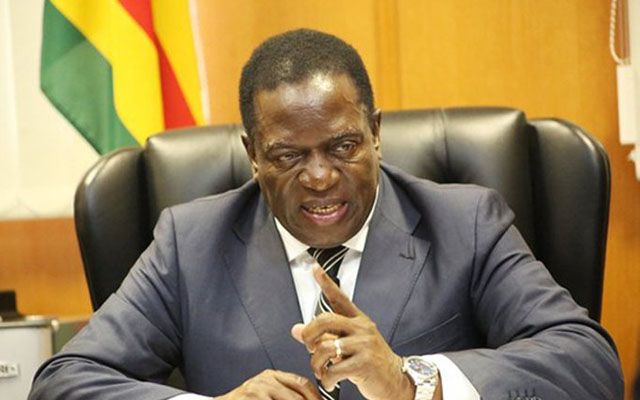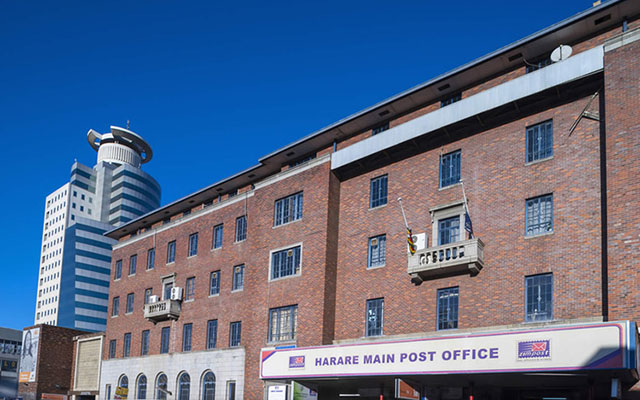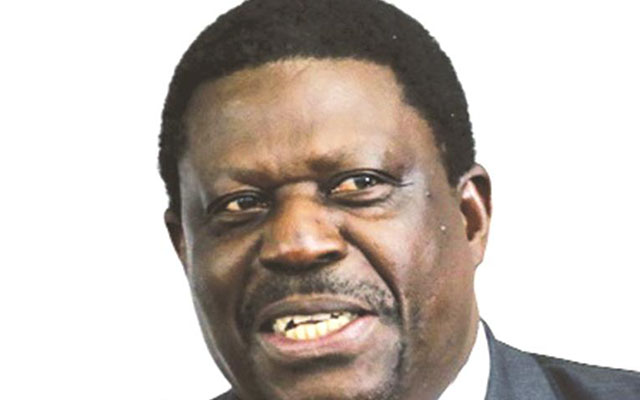Five things a ‘new era’ must address


In an interview with the Chinese media in 2015, then Vice President Emmerson Mnangagwa said Zimbabwe had lost 15-20 years of development and the country’s industry ran on obsolete machinery that needed recapacitation and retooling
Tichaona Zindoga Political Editor
Zimbabwe has just entered a new era — the post-Mugabe era — which is a reality that the world has to accept and it came about through a painful process of competing interests.
However, the day would eventually come as it did on Tuesday, November 21, 2017 as Cde Robert Mugabe resigned amid pressure from a party he served for at least 54 years.
Outside forces, including powerful Western countries such as Britain, the United States of America, the European Union bloc, Australia, Canada, etc, had always wanted to see his back for being a “bad” African and “bad” example of resource nationalism in the developing world.
The opposition in the country and its supporters worldwide have been waiting, some for the whole 37 years.
All things come to an end.
Was it not Professor Jonathan Moyo, a man who is infamous for saying that the only way to destroy Zanu-PF was from within, who once said: “Perennial wisdom from divine revelation and human experience dictates that all earthly things great or small, beautiful or ugly, good or bad, sad or happy, foolish or wise must finally come to an end”?
(In fact, Prof Moyo, having been banished from Zanu-PF over the Tsholotsho debacle, was calling for Cde Mugabe to step down, arguing: “That Mugabe must now go is thus no longer a dismissible opposition slogan, but a strategic necessity that desperately needs urgent legal and constitutional action by Mugabe himself well ahead of the presidential election scheduled for March 2008 in order to safeguard Zimbabwe’s national interest, security and sovereignty”.)
Suffice to say the end of Cde Mugabe’s era means different things to different people. It would be critical to note that since the intervention of the army and the attendant celebrations, capped all by jubilant scenes seen on the night of November 21, pose for the classic case of a “mixed multitude”.
The morning after we were slowly returning to our differences, but what is critical is that leading a post-Mugabe dispensation requires leadership that should chart a whole new way.
We identify five critical areas that will need to be looked at:
The economy and economic reforms
There is no doubt that everyone in Zimbabwe is looking for economic manna from heaven. People want economic prosperity as the economy had reached its nadir during the past 20 years and it is the singular factor that made Zimbabwe sink and its people disperse.
Some experts have claimed that Zimbabwe’s economy regressed to 1950s levels during the last 20 years and that is how the country got overtaken by other African countries and the famous “Asian Tigers” whose development and potential were lower than that of Zimbabwe in 1980.
In an interview with the Chinese media in 2015, then Vice President Emmerson Mnangagwa said Zimbabwe had lost 15-20 years of development and the country’s industry ran on obsolete machinery that needed recapacitation and retooling.
The task of mending the economy will be huge and entail massive reforms and different philosophical approach, but also tackle issues such as corruption and non-performance of public utilities.
How will the country adopt ease of doing business while maintaining the spirit of policies such as indigenisation?
Sanctions and re-engagement with the West; Whither Look East?
No doubt the sanctions imposed by the West have had a huge impact on the country’s economy. The objects and intent of sanctions imposed on the country was to break the economy, make the people suffer and lead to an uprising. Sanctions denied Zimbabwe balance of payment support, which stood at 46 percent of GDP when they were imposed in 2001 and made Zimbabwe the only African country that didn’t receive budgetary support; denied the country offshore lines of credit; prevented Zimbabwe from accessing money from the Global Fund on HIV and TB (two rounds); prevented companies from trading with Zimbabwe with the government of the United States punishing companies and individuals for “sanctions busting” or ignoring travel histories meant to deny tourist visits to the country.
The sanctions have been multifaceted and targeted critical sectors such as agriculture by targeting the land bank, Agribank and fertiliser and chemical maker Zimbabwe Fertilizer Company. The expansive sanctions are said to have cost the economy of Zimbabwe some US$50 billion. Now, the removal of sanctions will tie in with re-engagement with the West.
What is Zimbabwe willing to give and take? These will be matters of realpolitik. And, yeah, beyond the human rights cover behind which the West has been hiding when we know that they are friends with some worst human rights abusing governments and monarchs! Tied to this will be the review of the Look East policy. We pose, can we be able to look neither East nor West but just forward?
Diaspora, national unity and reconciliation
Zimbabwe has suffered a massive brain drain in the past 20 years as people migrated to other parts of the world in search of the so-called greener pastures. We have heard terms like economic refugees. This has caused a lot of economic and social dislocation. Many people will be willing to return home to rebuild their country.
However, they want to return to a country where they are guaranteed respect and place to contribute towards the nation’s recovery. A new leadership must guarantee these things and offer people with critical skills incentives to relocate and lead critical institutions. On the other hand, good policies and governance are enough and people would be looking for any good sign.
Tied to this Diaspora reconstruction is the need for a broader social and political re-engineering based on conditions for peace and reconciliation. Zimbabwe has undergone several phases of painful episodes that have gnawed at the soul of the nation and broken down people’s unity.
How does he address issues of the past and painful episodes in a manner that will see Zimbabwe’s wounds being healed? Many have suggested the setting up of a mechanism like South Africa’s Truth and Reconciliation Commission. We may have our own model that can best work for us relative to our history and experience.
Democracy, freedom and human rights
Zimbabweans love freedom. Some claim that they have never experienced freedom in their lives (which perhaps is relative) but there are certain rights that will need to be guaranteed people to ensure that they enjoy good governance . Freedom of expression, freedom of assembly, freedom to participate in civic duties, freedom of the media and so on. Of course these will come with responsibilities.
Our people cry freedom and admire displays of that in such countries as South Africa. It is good for national political health and democracy. It is for national happiness. Connected to this will be the process of elections and the expectations are that all political players should have an equal footing and battle on the level of ideas. May the best team win! This is also an imperative in gaining the credibility, legality and legitimacy needed at international level!
Zanu-PF and internal democracy
There is no doubt that Zanu-PF’s internal processes will, for the foreseeable future — let’s say at least 10 years — also reflect on the national stage. It has been an open secret that a number of outside interests have been willing to work with “a reformed Zanu-PF.”
That is a credible posture. It means that the party, the largest in the country and with its historical legitimacy, must be attuned to internal democracy, remove such odious notions as one centre of power and be prepared to change and adjunct from time to time. It is time to modernise.
And it is good for Zimbabwe.










Comments